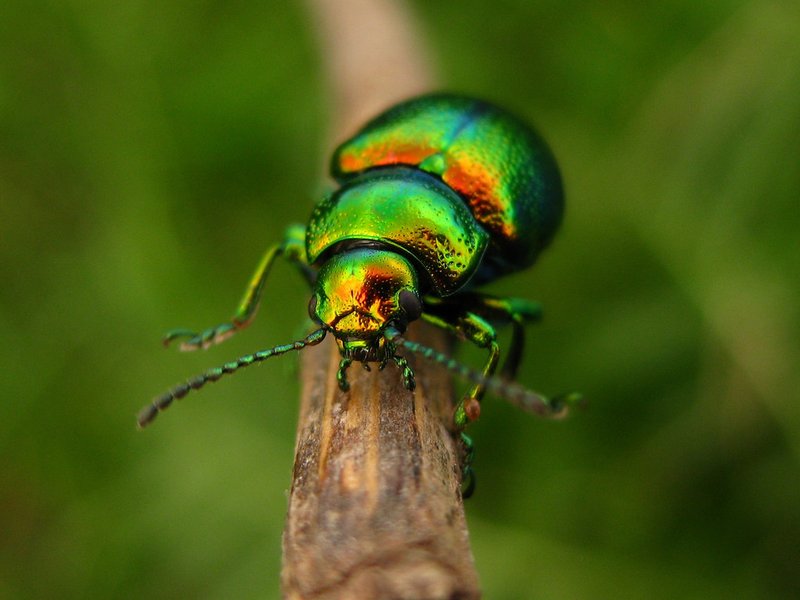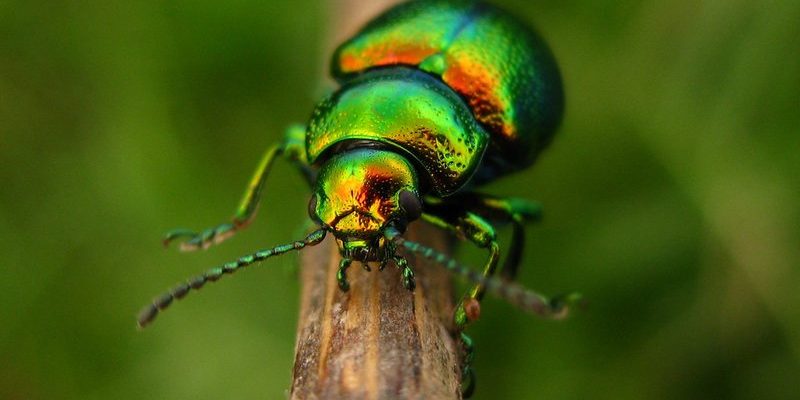
So, what does it mean when we say climate change affects beetles? Picture this: each time the weather shifts, it’s like a game of musical chairs for these insects. They have to adapt quickly, but with the stakes rising, many may not find a seat. This article dives into how climate change impacts these fascinating insects, their roles in the ecosystem, and what we can do to help them thrive.
Understanding Beetles: More than Just Bugs
You might think of beetles as simple bugs, but they’re actually a diverse group—over 350,000 species! That’s a lot of tiny creatures doing important work. Beetles are found in nearly every habitat on Earth, from rainforests to deserts. They consume dead plant and animal material, making them essential for nutrient cycling. Just like tiny recyclers, they break down waste, enriching the soil and supporting plant growth.
Beetles come in many shapes and sizes, with fascinating adaptations that help them survive different environments. Some can blend in with their surroundings to escape predators, while others have hard shells for protection. Honestly, they’re like nature’s little tanks! When we talk about climate change, we’re discussing how these adaptations interact with shifting temperatures, changing weather patterns, and unpredictable habitats.
How Climate Change Affects Beetle Habitats
Climate change can feel like a domino effect. When temperatures rise, habitats are altered, impacting everything from food sources to shelter. For beetles, that means changes in their living conditions, which can lead to big consequences.
For example, warmer temperatures might push certain beetle species to migrate to cooler areas. However, not all beetles can simply pack their bags and move. Some are highly specialized and can only thrive in specific environments. If those habitats change too quickly, they might not adapt, leading to declines in their populations.
Moreover, events like droughts and floods, which are becoming more common due to climate change, can destroy beetle habitats. Think of it like a storm washing away a home—when their homes are gone, so are they. This shifting landscape can disrupt entire ecosystems, where beetles play a critical role.
The Influence of Temperature on Beetle Behavior
Let’s talk about temperatures. Beetles are cold-blooded, meaning their body temperature depends on their environment. A small rise in temperature can cause big changes in their behavior and lifecycle. Warmer weather can lead to earlier breeding seasons for some beetles, which sounds good in theory, but it can mess with the timing of their food sources.
For instance, if a beetle hatches too early and its favorite plants haven’t bloomed yet, what does it eat? It’s a classic case of being out of sync. Plus, extreme heat can lead to higher mortality rates. Imagine trying to survive a summer heatwave without a cool drink—beetles face similar challenges!
Some beetles have shown an ability to adapt to new temperature ranges, but this is a delicate balance. Here’s the thing: rapid changes can outpace their ability to evolve, putting entire species at risk.
Pest Problems: Beetles and Agriculture
You might also wonder, how does climate change affect beetles in agriculture? It’s a bit of a double-edged sword. While some beetle species help control pests in farms, warmer temperatures can create an ideal environment for pest outbreaks. For example, the Colorado potato beetle thrives in warmer conditions, leading to more crop damage.
Farmers might find themselves battling more pests with fewer natural predators around. This situation can force them into reliance on pesticides, creating a cycle that can harm other beetle populations and damage the environment. It’s like a game of whack-a-mole, where each action can cause unforeseen consequences down the line.
The Role of Beetles in Ecosystems
Beetles do much more than just look cute; they’re vital to our ecosystems. They contribute to pollination, break down organic matter, and serve as a food source for other animals. Their decline due to climate change can disrupt food webs, leading to unbalanced ecosystems.
For instance, birds that rely on beetles as a primary food source might find it harder to find food during breeding seasons. Without enough food, bird populations can decrease. It’s a ripple effect that doesn’t just impact beetles but extends to the entire ecosystem.
Protecting beetles means protecting these interconnected systems. By understanding their importance, we can take action to ensure that they continue to thrive amidst changing climates.
Conservation Efforts: What Can We Do?
So, what can we do to help beetles in the face of climate change? There are several ways we can contribute, and every little action counts. Here are some simple steps:
- Plant native species: Native plants can provide food and habitat for beetles, helping them survive.
- Avoid pesticides: This helps protect beetle populations, allowing them to continue their essential work.
- Create beetle-friendly habitats: Leaves, logs, and undisturbed soil can all provide homes for beetles.
- Support local conservation efforts: Get involved with organizations that focus on protecting beetles and their habitats.
By making these small changes in our gardens and communities, we can create a welcoming environment for beetles, helping them adapt to a changing climate.
Looking Ahead: The Future of Beetles
The effects of climate change on beetles might seem daunting, but it’s important to remain hopeful. Scientists are studying these impacts and looking for ways to help beetle populations adapt. With awareness and concerted efforts, we can make a difference.
As we continue to learn about the intricate relationships between beetles and their environments, we can better understand how to safeguard their future. The more we recognize their vital role in our ecosystems, the more likely we are to take action that helps them survive in a warming world.
In conclusion, climate change presents significant challenges for beetles, but with the right knowledge and actions, we can support these essential creatures. Every step we take can help secure their place in the ecosystem, ensuring they continue their role as nature’s little heroes. Let’s work together to protect them!

